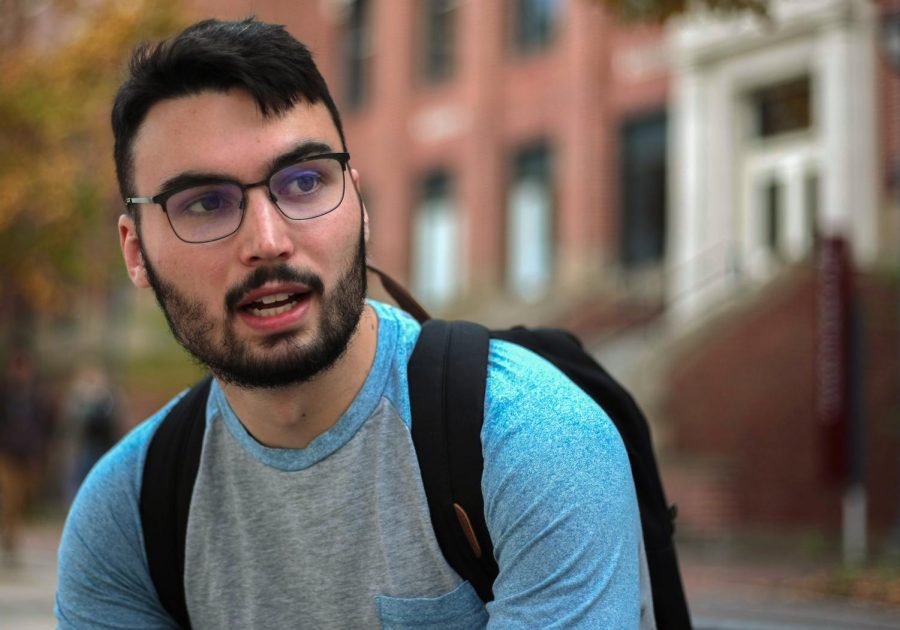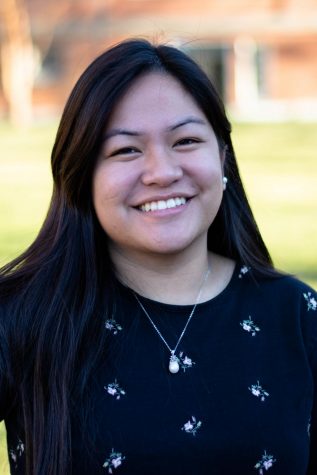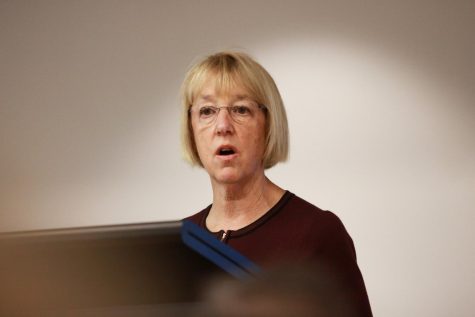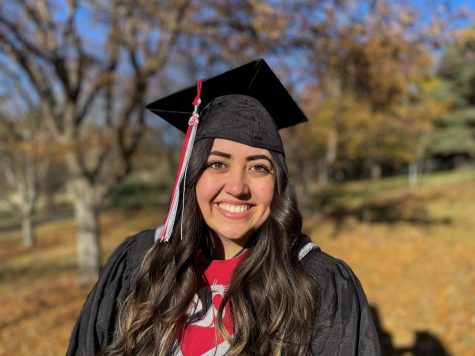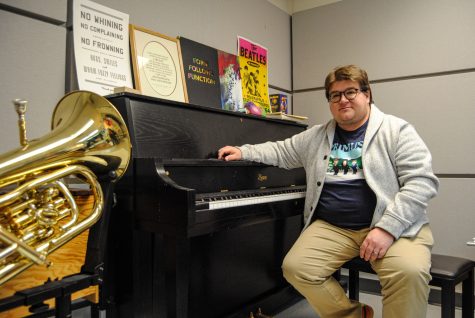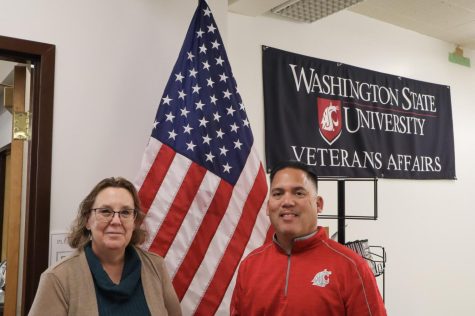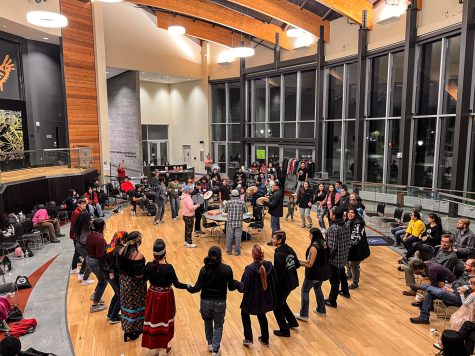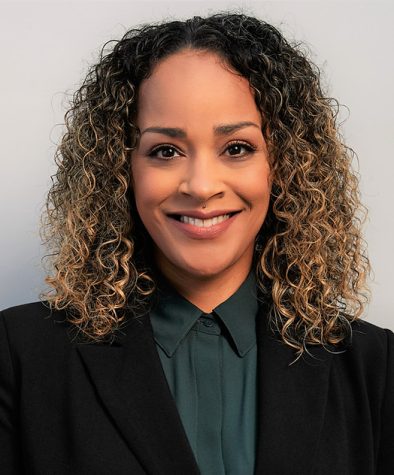Tutoring program creates bond between university, elementary school students
Sessions occur four days a week, aimed at students who struggle in classroom
BEN SCHUH | THE DAILY EVERGREEN
Anthony Eddy, WSU student and tutor coordinator for the Pullman School District K5 Morning Tutor Program, discusses his work in the tutoring program Monday on Terrell Mall.
October 3, 2018
A WSU doctorate student and local elementary school teacher co-founded a tutoring program that partners university students with elementary schools with the goal of making a difference in the community.
Paulina Abustan, co-founder and coordinator of the Pullman School District K-5 Morning Tutoring Program, said teachers in elementary schools refer to the tutoring program as “homework club,” and advise students who need extra assistance to attend.
The amount of students who can apply to the program is limited, said Sandra Casanova, co-founder of the program, which has about 90 students currently enrolled this year.
Casanova said teachers pick students who could benefit from the program, but some of them do not have transportation to get there early in the morning.
“That’s an aspect that we want to improve,” she said. “Not just providing the service, but having all the other services that would help get them here.”
Abustan said she recruited tutors from education and human development classes at WSU. Most of the tutors aspire to become future teachers and counselors.
“We’re getting the WSU students outside of the WSU bubble and into the community,” she said.
Any WSU student can apply to become a tutor, but they must go through a Pullman School District background check, Abustan said. They also need to submit a copy of their class schedule and commit two days a week.
Casanova said English is not the first language for about 80 percent of the students enrolled in the program. Tutors assist students with their homework on different subjects, but some teachers address a specific issue for certain students, Abustan said.
“The kids really start to get to know their tutors,” Abustan said. “They build a positive relationship with them.”
She mentioned the value of being a tutor and the effect they have on students. Tutors are perceived as role models and create a positive connection between the student and the tutor.
“Kids really look up to Cougs,” she said.
Anthony Eddy, a volunteer coordinator for the program, said he was not expecting to connect as much with the elementary students. He said the tutoring program is a great way to not only earn volunteer hours, but also gain experience for a future career.
“We have so many resources,” Eddy said. “To not take advantage of that, I think, would be silly.”
Abustan used to be a teacher’s assistant in Casanova’s class when the tutoring program idea came up, she said. There were a lot of students who hated math or did not want to read and she noticed it would be beneficial for the students if they had tutors.
The program runs from 7:30 to 8:30 a.m. Monday through Thursday at Jefferson Elementary School, she said. Franklin Elementary and Sunnyside Elementary schools adopted the same program and Kamiak Elementary aims to implement the program as well.
The program is volunteer-based, but they are searching for grants, Abustan said. They hope to make the program long-term and sustainable.
“This is all organic, this is all volunteer-led and run,” she said. “It’s specific to our local community.”
She said she always thinks about a quote from Margaret Mead when thinking about the tutoring program. The quote is about never doubting the change a small group can make.
“It was literally just me and [Casanova] that were like, ‘Hey, we should start something,’ ” Abustan said. “I never could’ve imagined in my life that I would’ve started something so wide and impactful.”
Correction: The subhead of this story has been updated to reflect that the sessions occur four days a week and not five.

